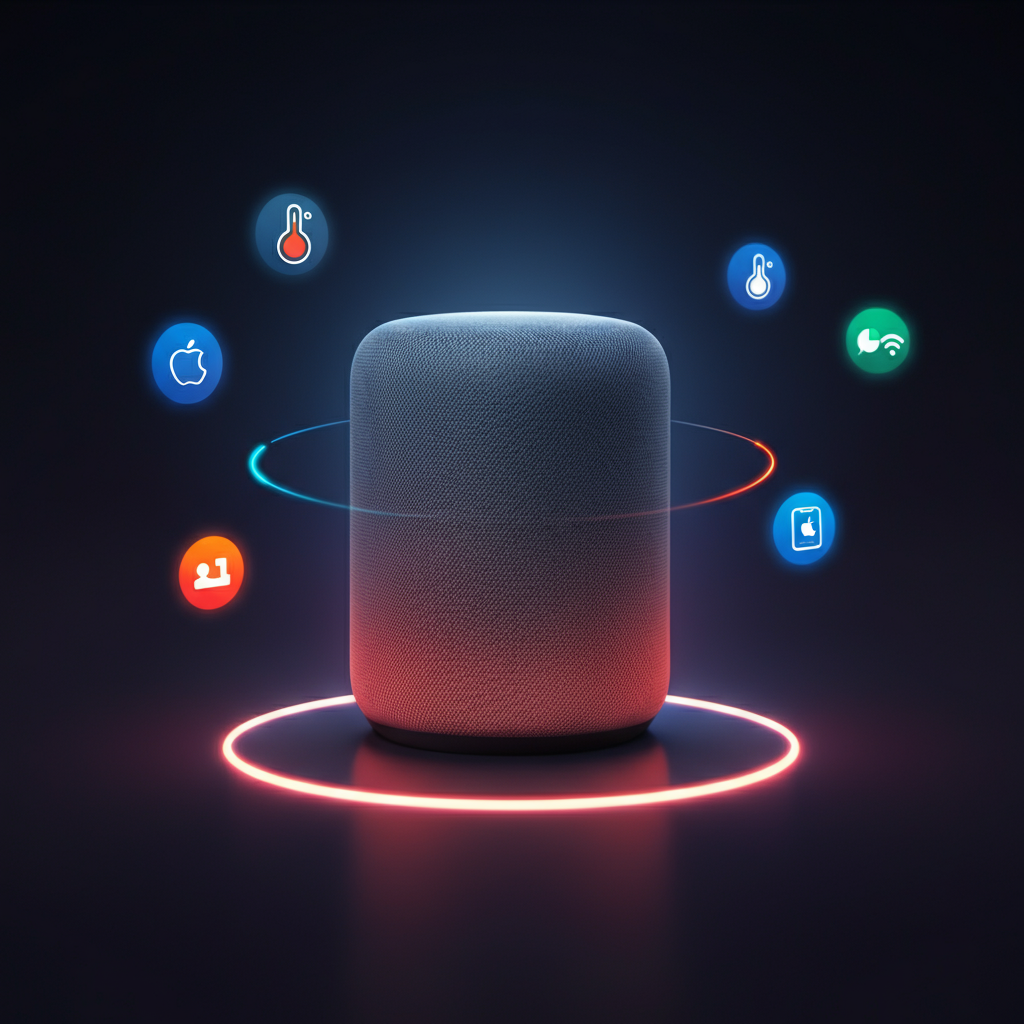Apple has always been at the forefront of innovation, and their latest venture into smart home technology is no exception. Introducing Apple’s new ‘Charismatic’ smart home OS, HomeOS promises to redefine how we interact with our living spaces. With a seamless blend of elegance and functionality, this operating system aims to bring harmony to your devices while enhancing user experience.
HomeOS takes cues from established platforms like tvOS and watchOS, ensuring an intuitive interface that feels familiar yet fresh. As households become increasingly interconnected, the need for a cohesive ecosystem becomes paramount. With Apple stepping into this arena, consumers can expect more than just convenience; they can anticipate a transformative shift in their day-to-day lives.
Join us as we explore the key features that make HomeOS stand out in today’s competitive landscape dominated by Alexa and Google Assistant. Discover what lies ahead with Apple’s ambitious roadmap for smart homes—it’s an exciting time for tech enthusiasts!
Features Inspired by tvOS and watchOS
Apple’s new, ‘Charismatic’ smart home OS draws heavily from the intuitive designs of tvOS and watchOS. Users will notice a familiar interface that prioritizes ease of navigation. This seamless experience promotes quick access to connected devices.
Incorporating features like multi-user support enhances personalization for families. Each member can enjoy tailored settings, ensuring their preferences are prioritized without strain on usability.
Additionally, HomeOS leverages rich media capabilities similar to those found in Apple TV and Apple Watch. The integration fosters a cohesive ecosystem where entertainment meets smart home management effortlessly, setting it apart in an increasingly competitive landscape dominated by Alexa and Google.
Unveiling the Roadmap: Smart Hub and Tabletop Robot
Apple’s new, ‘Charismatic’ smart home OS is paving the way for innovative devices. Among them, the Smart Hub stands out as a central control point for all connected home accessories. Designed to streamline user experience, it promises seamless integration with existing Apple products.
The introduction of a tabletop robot further enhances this ecosystem. This device will serve multiple functions, acting as both an assistant and interactive companion. Its ability to navigate common spaces adds a unique layer of convenience.
As both products roll out, they are expected to redefine how users interact with their smart homes. With pioneering features inspired by tvOS and watchOS, Apple aims to set itself apart from competitors like Alexa and Google.
Assessing Siri’s Role and Limitations
Siri’s integration into Apple’s new, ‘Charismatic’ smart home OS offers a familiar interface for users. As a voice assistant, it aims to streamline control over various smart devices seamlessly. Users can expect basic commands and functionalities that align with their needs.
However, Siri still faces limitations compared to rivals like Alexa and Google Assistant. Its ability to handle complex tasks or interpret nuanced queries isn’t as advanced. This gap can frustrate users seeking more robust performance in managing their smart homes.
Additionally, Siri’s ecosystem is somewhat restrictive due to Apple’s closed platform approach. While it works well within its environment, compatibility with third-party devices may not always match the flexibility seen in other systems.
Potential Impact on the Smart Home Market
Apple’s new, ‘Charismatic’ smart home OS is poised to make a significant impact on the smart home market. By integrating features from tvOS and watchOS, it promises a seamless user experience across devices. The introduction of innovative elements like the Smart Hub and Tabletop Robot could redefine how consumers interact with their homes.
While Siri’s functionalities may still have limitations compared to competitors like Alexa and Google Assistant, Apple aims to enhance its capabilities continually. With a focus on privacy and user-friendly design, this new operating system has the potential to attract users looking for sophisticated yet accessible smart home solutions.
As Apple enters this competitive landscape, its unique approach could shift consumer preferences away from existing giants in the industry. The evolution of HomeOS will be crucial as we observe how it influences future developments in smart technology integration within our homes.


